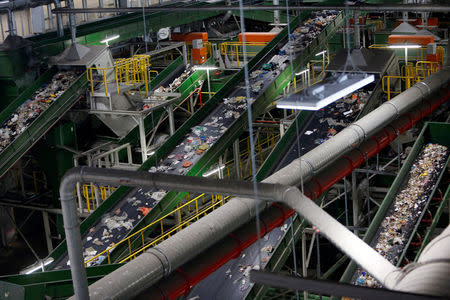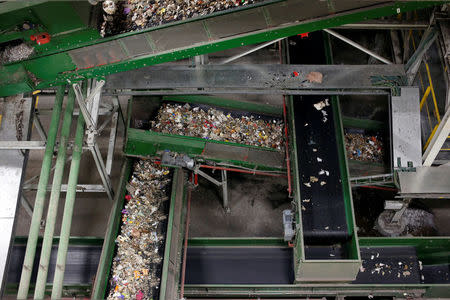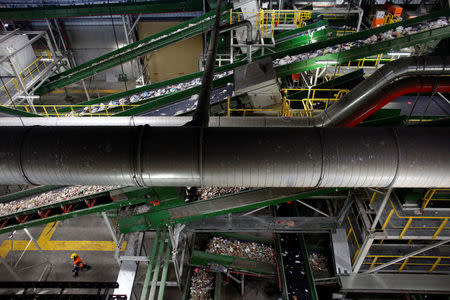Tel Aviv's trash is being turned into fuel
TEL AVIV (Reuters) - Residents of Tel Aviv can start feeling a little less guilty about the amount of garbage they throw away. Just a short drive from the city, a new waste collection plant has begun processing the trash from an endless stream of garbage trucks, turning much of it into fuel for a nearby factory. The owners say it is the largest plant of its kind in the world. The terminal creates what is known as Refuse Derived Fuel (RDF), handling about 1,500 tonnes of trash a day, or about half the trash produced by 1.5 million residents of Tel Aviv and its suburbs. Recyclables like paper and metals are separated out and the rest is mostly turned into small bits of dry, high energy RDF that is sent to Israel's main cement factory, where it is burned instead of a less environment-friendly fossil fuel, petroleum coke. The $110 million waste-to-fuel terminal was built by a consortium that includes Israel's largest cement maker Nesher, which is owned by Clal Industries, as well as Veridis Environment and the region's recycling authority. "It's a huge step for Israel toward a better environment, and we hope in the future to build other facilities," said Doron Sapir, first deputy mayor of Tel Aviv and chairman of the region's recycling center. (Reporting by Ari Rabinovitch; Editing by Tova Cohen)

 Yahoo News
Yahoo News 



